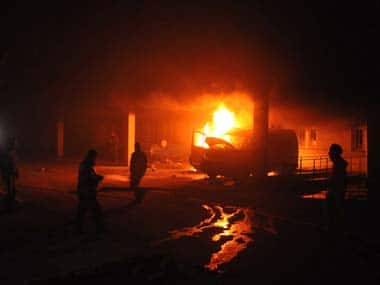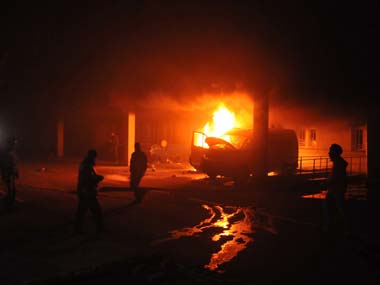Editor’s note: This is a reader we received on the piece Another Cold War? India can’t ignore Crimea crisis in Ukraine. As per Firstpost policy, the comment has been edited for spellings and grammar.
by Amit Agarwal
Ukraine has been politically unstable ever since well-meaning amateurs made first attempts to transform Ukraine into a utopia in late 2004 (Orange Revolution, remember?). In the last week, a similar, well-meaning mob achieved a government overthrow in Ukraine. That government was sympathetic to its giant eastern neighbor - Russia. Russia embarked on the first of the many of its counteractions on Tuesday: it invaded Crimea which is part of Ukrainian Peninsula that extends into the Black Sea. This was simple, as only Russia has naval presence in Black Sea, and logistic lines connecting Crimea to the rest of Ukraine are easy to block. Tinkering with gas supply would normally be a much lower cost alternative for Russia - something that Russia has done several times in the past. However this time this weapon of choice was blunted by the fact that Europe continues to experience an unusually warm winter. More gas is produced in expectations of rise in winter demand. However an unexpectedly mild winter leads to much lower gas usage. This renders Ukrainians less vulnerable and thus less pliable to tinkering of gas supplies. [caption id=“attachment_1399039” align=“alignleft” width=“380”]  Ukrainian protesters burn a cars outside a Security Service headquarters in Lviv, western Ukraine, early Wednesday. AP[/caption] At the time when USSR broke up, Ukraine inherited one of the largest nuclear arsenals in the world. Ukraine gave it up under the Budapest Memorandum on Security Assurances - a 1995 agreement signed by Ukraine, Russia and leading NATO members. In return the signatories pledged to protect Ukrainian sovereignty when faced with external aggression. When Ukraine gave up nuclear weapons, it had no illusion that the agreement was mainly to guard it against Russia in the decades to come. Therefore, Ukraine essentially gave up nuclear weapons based on promises of leading NATO members. As Ukraine feared, Russia has now made an armed entry into Ukraine. Russia has a reputation of not respecting international agreements when it has the power to overturn or ignore them. However, here I would like to draw attention to the pulpit priests who have fallen behind on their agreement to defend Ukraine against external aggression. Ukraine yielded its right to nuclear weapons to external powers - an act that strengthened and perpetuated the world order based on exclusive rights of a few nations to nuclear weapons. However, events in Ukraine do not bode well for those who give up weapons of mass destruction in return for assurances.


)
)
)
)
)
)
)
)
)



